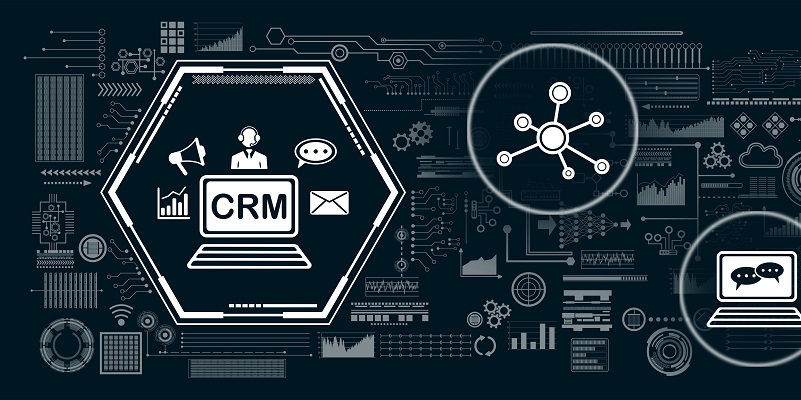In today’s dynamic and rapidly evolving business landscape, staying ahead of the competition and satisfying customer needs is crucial. To achieve this, businesses need to focus on their customer relationship management (CRM) strategies. By effectively utilizing CRM tools and techniques, companies can personalize customer experiences, enhance communication, and gain valuable insights into customer preferences and pain points.
Adjusting Prices: Utilizing attractive discounts, deals, or freebies during price hikes to maintain customer interest
One effective way to navigate the ever-changing business landscape is by adjusting prices intelligently. In times of price hikes, customers might become reluctant to make purchases, leading to a decline in sales. However, by offering attractive discounts, deals, or freebies during these periods, businesses can keep customer interest intact and even attract new customers. This strategy not only helps in maintaining customer loyalty but also aids in mitigating the negative impacts of price hikes.
Utilizing CRM Software: The benefits of CRM software in personalizing customer experiences and facilitating seamless communication
CRM software plays a pivotal role in managing and improving customer relationships. By leveraging CRM software, businesses can personalize customer experiences, ensuring that customers feel valued and understood. Personalization allows businesses to tailor their messages, offers, and services to align with the preferences and needs of individual customers. This level of customization enhances customer satisfaction and loyalty.
CRM software also facilitates seamless communication between businesses and customers. It streamlines the communication process, ensuring that customers receive timely responses to their queries, complaints, or requests. With CRM software, businesses can automate communication processes, track customer interactions, and deliver consistent service across various touchpoints.
Analyzing Customer Data: The importance of analyzing data to gain insights into customer preferences and pain points
Collecting and analyzing customer data is crucial for businesses to understand their customers better. By analyzing data, businesses can gain valuable insights into customer preferences, behavioral patterns, and pain points. This data provides a comprehensive view of customer needs and expectations, which can be utilized to develop effective marketing strategies, design customer-oriented products, and improve overall customer service.
Adaptable Products and Services: The need for products and services that can adapt to changing customer needs and expectations
Customers’ needs and expectations are constantly evolving. To thrive in the ever-changing business landscape, businesses must develop products and services that can adapt to these changes. By understanding customer preferences and pain points through data analysis, businesses can identify areas for improvement and make necessary adjustments to their offerings. This adaptability not only ensures customer satisfaction but also helps businesses stay ahead of their competitors.
Tracking Interactions: Monitoring customer engagement through various touchpoints to gauge customer satisfaction and behavior
Gaining insights into customer behavior and satisfaction levels is crucial for businesses to make informed decisions. By tracking customer interactions through various touchpoints such as email, phone calls, online chat, website visits, and social media interactions, businesses can gauge the effectiveness of their communication strategies and identify areas for improvement. This ongoing monitoring and analysis of customer engagement helps businesses identify customer pain points, anticipate their needs, and deliver exceptional customer experiences.
Data Analysis: Leveraging CRM data to gain a deeper understanding of customer demographics, purchase history, and website behavior
CRM data contains a wealth of information that can be leveraged to gain a deeper understanding of customer demographics, purchase history, and website behavior. By analyzing this data, businesses can segment their customer base, allowing for more targeted marketing efforts. It also helps in identifying cross-selling and upselling opportunities, developing personalized offers, and improving customer service by tailoring solutions to specific customer groups.
Virtual Communication in CRM: Exploring innovative ways to engage and communicate with customers in a virtual environment
In today’s digital age, virtual communication has become increasingly important. Businesses need to explore innovative ways to engage and communicate with customers in a virtual environment. Virtual communication tools integrated into CRM systems enable businesses to connect with customers through video conferences, online chat, or social media platforms. These tools foster a sense of personalized communication, offering customers the convenience of remote interactions while maintaining the benefits of face-to-face communication.
Personalization: Tailoring messages and improving service efficiency through personalized approaches
Personalization is the key to enhancing customer experiences and improving service efficiency. By tailoring messages and offers to each customer’s preferences and needs, businesses can create a unique and personalized experience. This level of personalization can be achieved by utilizing CRM data to customize marketing campaigns, offers, and communication strategies. Personalization not only strengthens customer relationships but also increases service efficiency by delivering relevant and targeted solutions.
Future Innovations: Speculating on future advancements in CRM personalization and how they can enhance customer interactions and engagement
As technology continues to advance, we can anticipate various innovations and advancements in the CRM personalization landscape. These innovations will revolutionize the way businesses interact and engage with customers, further enhancing their experiences. From artificial intelligence-powered chatbots that can provide instant and personalized customer support to virtual reality experiences that immerse customers in a brand’s story, the possibilities are endless. Embracing these future advancements will enable businesses to stay ahead of the curve and deliver exceptional customer experiences.
In conclusion, focusing on CRM strategies is a smart way for businesses to navigate the ever-changing business landscape. By adjusting prices, utilizing CRM software, analyzing customer data, offering adaptable products and services, tracking interactions, and leveraging CRM data, businesses can enhance customer experiences, improve communication, and gain valuable insights. Embracing virtual communication, personalization, and keeping an eye on future innovations will ensure businesses stay ahead of the competition and deliver exceptional customer interactions and engagement. By prioritizing CRM strategies, businesses can adapt to change, satisfy customer needs, and build strong and lasting relationships.

